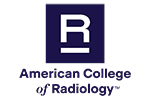Seizures—Child
Every year, approximately 120,000 children have a first seizure. To determine what type of imaging test should be performed after a seizure, physicians look at additional symptoms and use the results of an electroencephalogram, a test that measures brain electrical activity.
A simple seizure due to a fever (febrile seizure) typically lasts fewer than 15 minutes and does not recur within 24 hours. Patients suffering a febrile seizure do not require imaging. A complex febrile seizure lasts longer than 15 minutes and reoccurs within 24 hours. MRI or CT is recommended for patients with complex febrile seizures or if infection or trauma is suspected.
Brain CT is recommended for a first-time seizure in a child without fever who is younger than 2 years to look for signs of injury resulting from child abuse.
Seizures in newborns (neonatal seizures) are usually due to brain damage due to lack of oxygen or bleeding in the brain. The recommended imaging test is an ultrasound of the head. MRI of the brain without contrast may also be appropriate.
Brain CT without contrast is recommended when a seizure occurs after acute trauma. Follow-up brain MRI without contrast may be beneficial after traumatic brain injury.
In partial seizures (affecting one side of the brain), generalized seizures (affecting the whole brain), and seizures that, even with treatment, recur for more than 12 months (intractable seizure), an MRI without contrast is recommended to look for malformations of the brain.
This page was reviewed on December 15, 2021


